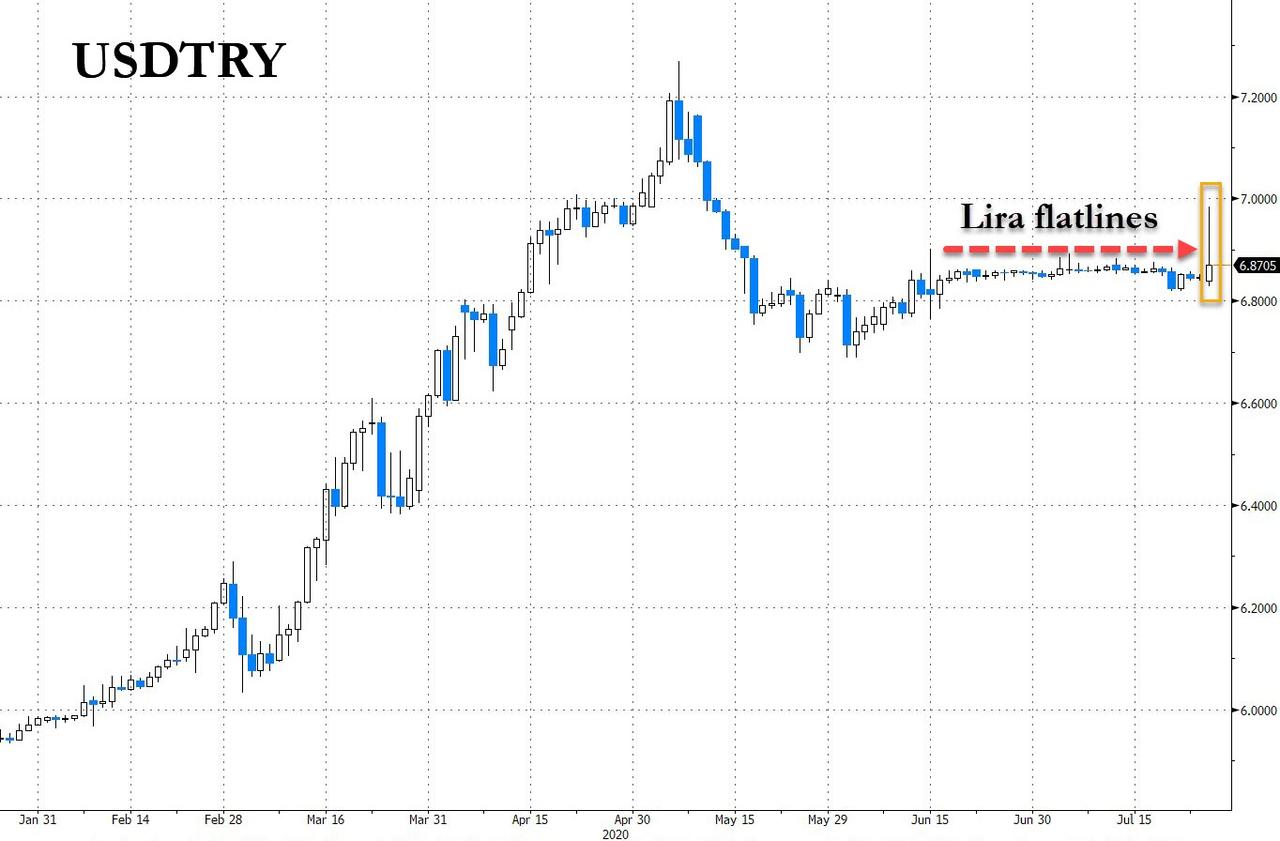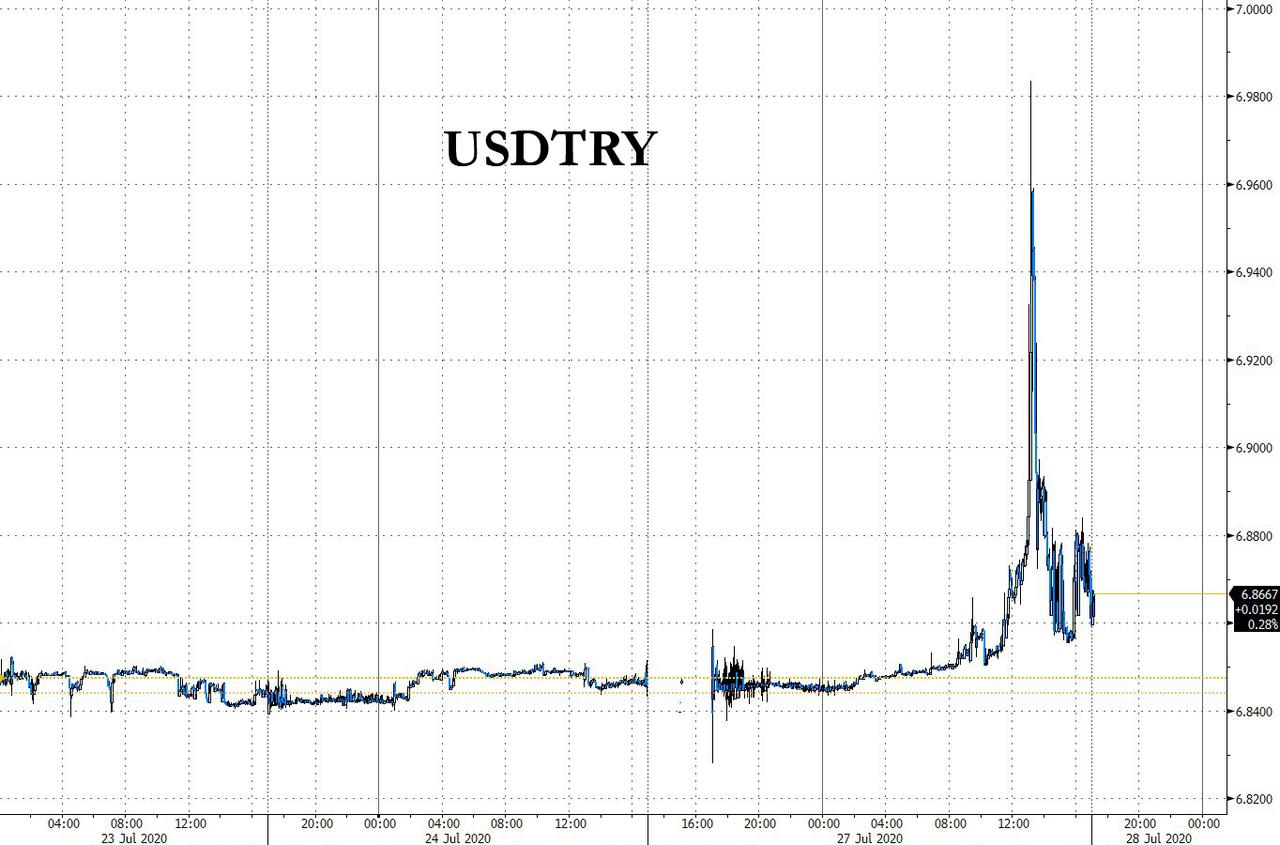Turkish Lira Goes Berserk As Central Bank Briefly Loses Grip On Capital Controls
Tyler Durden
Mon, 07/27/2020 – 19:25
Some time in mid-June, Turkey’s president Erdogan and the central bank which he now de facto controls, decided to do to the Turkish lira what the Fed has done to the bond market, and nationalized it the result being an unprecedented flatlining in the country’s troubled currency which had been collapsing in the months prior and only the government’s ruthless intervention managed to halt the slow-mo collapse.
As shown in the chart below, for the past month the USDTRY was effectively pegged to a level of 6.85, ending the currency’s precipitous decline.
However today, just after 1pm ET, the government and central bank finally lost control of the lira their multiple capital controls failing to protect the currency from the forces of the free market, and the lira crashed 2% against the dollar in the space of minutes – posting its biggest intraday drop since October 7 as the USDTRY spiekd as high as 6.9835 – before the central bank finally regained control, and the currency quickly rallied back to recover most of its losses amid local limits on credit lines and liquidity.
The lira briefly also touched an all-time low the euro, falling as much as 3% to 8.2178 at 1:14 p.m. ET before retreating to trade at 8.0791
“A few theories could be the way domestic banks manage their FX exposures,” Wells Fargo FX strategist Brendan McKenna told Bloomberg. “Turkish banks have all but placed capital controls in place and any time there are some adjustments to regulations they can cause some swings in the lira.”
By “some adjustments”, he probably means that any time something unexpected happens and the capital controls fail to keep the currency pegged to its imaginary value, all hell breaks loose as it briefly did earlier today.
While Turkey has generally kept a very low profile in recent months, suffering from a substantial slowdown in foreign investment hitting its bond market and capital accounts, it has been hit by an escalating geopolitical conflict with Greece; as we reported over the weekend, tensions flared up over the weekend in the Mediterranean region after the government in Ankara said it was sending a ship to carry out a drilling survey in waters contested by Turkey and Greece.
![]()
Zero Hedge’s mission is to widen the scope of financial, economic and political information available to the professional investing public, to skeptically examine and, where necessary, attack the flaccid institution that financial journalism has become, to liberate oppressed knowledge, to provide analysis uninhibited by political constraint and to facilitate information’s unending quest for freedom. Visit https://www.zerohedge.com

